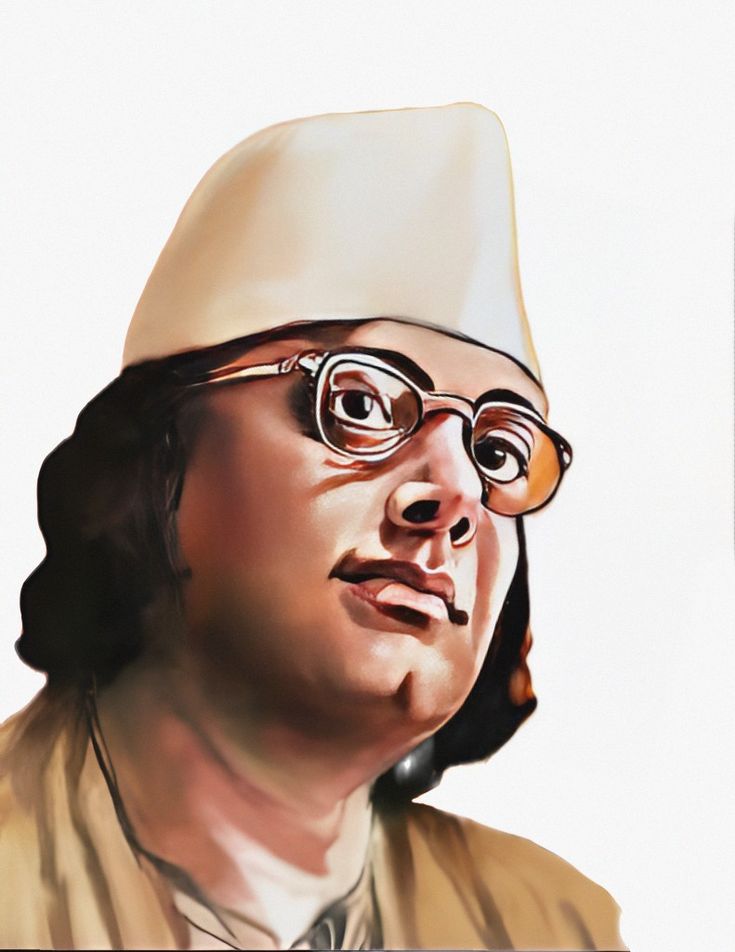Powerful Facts About Kazi Nazrul Islam: The Rebel Poet
Introduction
Kazi Nazrul Islam, widely known as the ‘Rebel Poet’ of Bengal, was a revolutionary literary figure whose works embodied themes of freedom, equality, and justice. His poetry, music, and writings played a crucial role in inspiring movements against oppression and colonial rule. His impact on literature, culture, and social justice remains unparalleled.
Biography of Kazi Nazrul Islam
Early Life and Education
Kazi Nazrul Islam was born on May 24, 1899, in Churulia, Bengal (now in West Bengal, India). Despite facing poverty, he showed remarkable talent from a young age. He joined a local madrasa for primary education and later pursued studies at a high school, where he developed a deep interest in literature and music.
At the age of 10, after his father’s death, he worked to support his family while continuing his education. He later joined the British Indian Army as a soldier, an experience that shaped his revolutionary spirit and nationalist ideals.
Literary Career and Achievements
Nazrul’s literary career was marked by powerful poetry and prose that defied societal norms and inspired freedom movements. His major works include:
- Bidrohi (The Rebel) – His most famous poem, a bold declaration against oppression.
- Agnibeena (The Fiery Lute) – His first collection of poetry, filled with fiery revolutionary themes.
- Dolan Champa – A romantic and philosophical collection of poetry.
- Bisher Bashi – A novel highlighting social injustice.
- Nazrul Geeti – A collection of over 4,000 songs, fusing different musical styles.
Nazrul’s works earned him the title of ‘Rebel Poet,’ and he became a voice for the marginalized, advocating for Hindu-Muslim unity and equality.
Daily Life and Its Impact on His Writing
Nazrul led a life filled with struggles and passions. His deep engagement with social issues, experiences in the army, and spiritual pursuits deeply influenced his literary creations. His writings reflected:
- Resistance against colonial rule and social injustice.
- Celebration of love, humanity, and unity beyond religious divides.
- A blend of Sufi mysticism and revolutionary zeal.
His works resonated with people across generations, making him an icon of resilience and change.
Significance of Kazi Nazrul Islam’s Works
Influence on Literature and Society
Nazrul’s contributions to Bengali literature and music are immense. His fearless writings and patriotic songs fueled India’s independence movement and later influenced the cultural fabric of Bangladesh.
Symbol of Religious Harmony
Nazrul’s compositions often incorporated elements from both Hindu and Islamic traditions, emphasizing unity and co-existence. His famous lines reflect his belief in a world free from sectarianism and discrimination.
Observance and Legacy
Today, Nazrul’s legacy is honored in Bangladesh and India. He was declared the National Poet of Bangladesh, and his songs and poetry continue to be performed and celebrated.
10 Important Facts About Kazi Nazrul Islam
- Born in 1899, he came from a humble background in Bengal.
- He joined the British Indian Army, which shaped his revolutionary ideas.
- His poem Bidrohi made him famous as the ‘Rebel Poet.’
- He was imprisoned for his anti-British writings.
- He composed over 4,000 songs, known as Nazrul Geeti.
- He advocated for Hindu-Muslim unity in his works.
- His poetry often combined elements of mysticism and revolution.
- He suffered from an unknown neurological disorder that silenced his voice in his later years.
- He was declared Bangladesh’s National Poet.
- His contributions to literature, music, and freedom movements remain influential today.
FAQs About Kazi Nazrul Islam
Q1. Why is Kazi Nazrul Islam famous?
Kazi Nazrul Islam is famous for his revolutionary poetry, patriotic songs, and commitment to social justice.
Q2. What is Kazi Nazrul Islam’s most famous work?
His poem Bidrohi (The Rebel) is one of his most iconic works, symbolizing defiance and strength.
Q3. What was Nazrul’s contribution to music?
He composed thousands of songs, fusing Bengali folk, Hindustani classical, and Islamic devotional music.
Q4. How is Kazi Nazrul Islam remembered today?
His works are celebrated in Bangladesh and India, and his songs and poems remain timeless in literary and cultural circles.
Why Is Kazi Nazrul Islam Important to Society?
Nazrul’s fearless voice against oppression and injustice continues to inspire generations. His literature promotes equality, unity, and resilience, making him a timeless symbol of courage and resistance.
Wishing on Kazi Nazrul Islam’s Legacy
Celebrating Nazrul’s contributions, here are some tributes:
- “Remembering Kazi Nazrul Islam, the voice of revolution and love.”
- “May the words of the Rebel Poet continue to inspire justice and equality.”
- “A salute to Nazrul’s timeless legacy of poetry and patriotism.”
Conclusion
Kazi Nazrul Islam was not just a poet; he was a movement. His works continue to inspire revolutions of thought and action. His fearless defiance against oppression and his unwavering call for unity make him a legend who will never be forgotten.
Final Thought:
If you haven’t yet explored Nazrul’s poetry and music, now is the time to experience the powerful words of the Rebel Poet!










